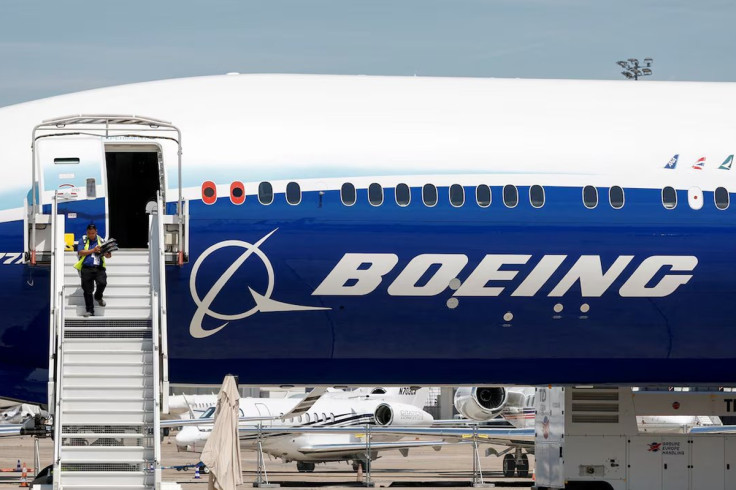Boeing Strike Kicks Off Amidst Contract Disputes: What The 3,000 Employees Are Demanding

Boeing's workforce delivered another blow to the aviation giant as 3,200 employees launched a strike after overwhelmingly rejecting the company's labour agreement.
The industrial action adds to Boeing's mounting troubles, which include recent aeroplane crashes and serious allegations about faulty safety measures throughout its workspace and production lines.
Strike Action Takes Flight
The 'walkout' was led by employees under the International Association of Machinists and Aerospace Workers (IAM) in St. Louis, home to Boeing's defence manufacturing centre. In a public statement, IAM District 837 Directing Business Representative Tom Boelling stated that 'they deserve a contract that reflects their skill, dedication, and the critical role they play in our nation's defence.'
'We stand shoulder to shoulder with these working families as they fight for fairness and respect on the job,' he said.
Meanwhile, IAM International President Brian Bryant commented, 'Our union is built on democracy, and our members have every right to demand a contract worthy of their contributions. We will be there on the picket lines, ensuring Boeing hears the collective power of working people.'
For context, members of the IAM are responsible for assembling and maintaining sophisticated aircraft and weapons systems, such as the F-15, F/A-18, and state-of-the-art missile and defence technologies.
Initial Refusal of Boeing Contract
A week ago, over 3,200 members of IAM District 837 at Boeing facilities in St. Louis, St. Charles, Missouri, and Mascoutah, Illinois, voted to reject the company's latest contract offer.
The vote, held Sunday, July 27, reflects widespread dissatisfaction among union members, who say the proposal from Boeing Defence failed to address their key concerns. The current contract is set to expire at 11:59 p.m. CT on July 27, after which a seven-day cooling-off period will precede any potential strike.
The IAM Union has expressed a strong desire to return to negotiations and secure a fair agreement that reflects the contributions of its members.
Boeing's Response and Counteroffer
Boeing has released a statement before the strike, stating that 'they are disappointed' that their employees rejected their offer, which included a 40% average wage growth.
'We're disappointed our employees rejected an offer that featured 40% average wage growth and resolved their primary issue on alternative work schedules. We are prepared for a strike and have fully implemented our contingency plan to ensure our non-striking workforce can continue supporting our customers,' the company said.
The first contract proposes a 20% wage increase over three years, including auto-progression and additional shift differentials, alongside a 5,000ratification bonus that can be deferred into the company.
Moreover, the contract also enhances paid leave and maintains top−tier healthcare without cost increases. Notably, pension benefits are improved with an increase in the multiplier by five each in
Years 2 and 3, with an option for a full $10 increase in Year 1. While an alternative workweek schedule was proposed, it was withdrawn, leaving current overtime policies unchanged.
These terms aim to boost employee compensation, benefits, and retirement security while maintaining Boeing's competitive edge.
Snapshot of Boeing's Woes
In the second quarter of 2025, Boeing posted revenue of $22.75 billion (£17.13 billion), up 35% year-over-year, and narrowed its net loss to $611 million (£459.98 million), a significant improvement from a $1.44 billion loss in Q2 2024.
The company delivered 206 Boeing 737 MAX jets and raised 787 production to seven per month, contributing to this better performance.
While momentum is returning, Boeing still faces significant headwinds. Its 2024 full-year net loss totalled $11.8 billion (£8.88 billion), driven by strikes, safety issues, and operational setbacks.
As Boeing works to stabilise operations and finances, the path ahead remains uncertain. Whilst recent gains in jet deliveries and narrowing quarterly losses offer signs of progress, deep-rooted challenges—including ongoing labour disputes, reputational damage from safety concerns, and lingering effects of past setbacks—continue to weigh heavily on the company.
© Copyright IBTimes 2025. All rights reserved.





















